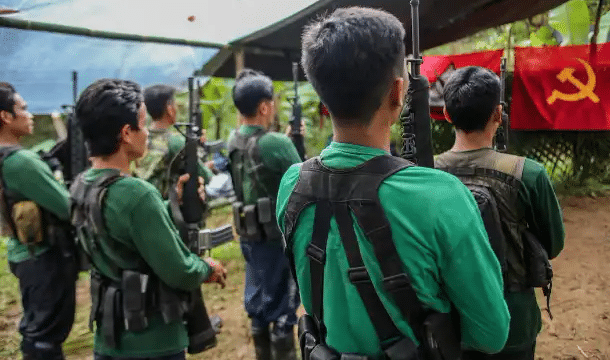
MANILA (UCAN): “As Church leaders, we are consistent in our belief that an all-out-war policy will not resolve the decades-old armed conflict,” the Philippine Ecumenical Peace Platform [PEPP], said in a statement on June 14. The group, composed of Catholics, Protestants, and Muslims, insisted on a peaceful strategy to resolve the violent insurgency in the country.
Just a day earlier the Philippine’s newly appointed defense chief, Gilbert Teodoro Jr., said that the president, Ferdinand Marcos Jr., would not negotiate with “terrorists” and that the Communist Party of the Philippines must stop attacking state forces if it wanted to engage in peace talks.
PEPP said that violence “will be costlier in terms of the loss of lives and the budget for war material” and reminded that “an all-out violence policy” by previous administrations did not work and “brought only widespread violation of human rights.”
It noted that “the [former president Gloria Macapagal] Arroyo administration was then heavily criticised nationally and internationally for its human rights record, even at the level of the United Nations. More than a decade has passed since then and a just and enduring peace is still as elusive as ever,”
At his June 13 press conference, Teodoro referenced the series of attacks led by the communist party’s armed wing, New Peoples’ Army [NPA], in several towns in the archipelago.
As Church leaders, we are consistent in our belief that an all-out-war policy will not resolve the decades-old armed conflict
Philippine Ecumenical Peace Platform
In March, communist rebels clashed with government forces in four towns on Masbate island in Luzon province. Two months later, seven rebels were killed while two soldiers died when rebels clashed with government troops in Samar province in the Visayas region.
Security forces and public authorities refer to the communist underground groups and the NPA, as well as their sympathisers, as the “Reds”.
Their armed struggle, launched in 1969, grew out of the global communist movement, finding fertile soil in the Philippines’ stark rich-poor divide. At its peak in the 1980s, the group boasted about 26,000 fighters, a number the military says has now dwindled to a few thousand.
Since 1986, successive Philippine administrations have held peace talks with the communists through their Netherlands-based political leadership.
As we celebrate the 500 years of Christianity in the Philippines. The Chaplaincy to Filipino Migrants organises an on-line talk every Tuesday at 9.00pm. You can join us at:
https://www.Facebook.com/CFM-Gifted-to-give-101039001847033
As the rebellion weakened, party leaders sought to enter a coalition government with former president, Rodrigo Duterte.
Peace talks were held in hopes of ending the insurgency, but Duterte cut them off in 2017, declaring the NPA a terrorist organisation and accusing it of killing policemen and soldiers while negotiations were underway.
“Our police and armed forces suffered several attacks that will lead us to conclude that peace is not the main priority of this group as of the moment,” Teodoro said.
Peace talks were held in hopes of ending the insurgency, but Duterte cut them off in 2017, declaring the NPA a terrorist organisation and accusing it of killing policemen and soldiers while negotiations were underway
Teodoro, a veteran lawyer, said that an indicator of the communists’ willingness to pursue peace would be for them to lay down their arms and participate in the political discourse.
“They must participate in discussions in Congress. They are represented. Communism is not a crime but a belief. It is the spread of terror that is the crime, not the belief in communism,” he said.
Teodoro stressed that “until they have laid down their arms, it is not possible to engage in any negotiation with the Communist party.”
However, anthropologist, Wilmer Gomez, argued that poverty was the reason why people join extremist groups.
“It is the lack of basic material things that drives men to struggle for social change. The abuse by those in power, and poverty, became the tool of extremist groups to recruit. They [the poor] have no more hope but to go for radical social change… revolution,” Gomez said.
A 48-year-old former communist rebel said he was having a tough time surviving as he had three children and a wife to take care of.
“When I joined the NPA, we had an allowance given by the communist party. It was like a job fighting for the oppressed,” Miguel Toledo recounted.
The Catholic bishops’ Commission on Social, Justice and Peace said the Church’s doors were open to those who wanted to return to normal life.
“Although poverty is a legitimate cause of why people raise arms against the government, it is not the way to resolve conflicts in the Christian way. The Church is always ready to assist those who denounce arms and violence as methods of resolving conflict,” the commission’s chairperson, and Bishop Gerardo Alminaza of San Carlos, said.








